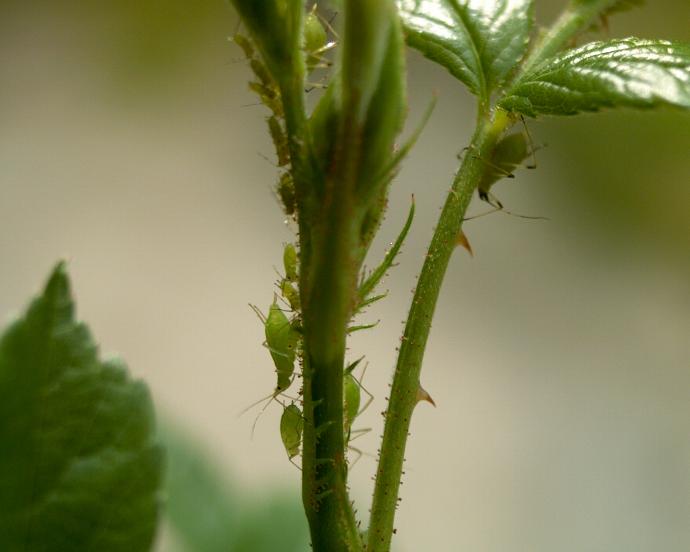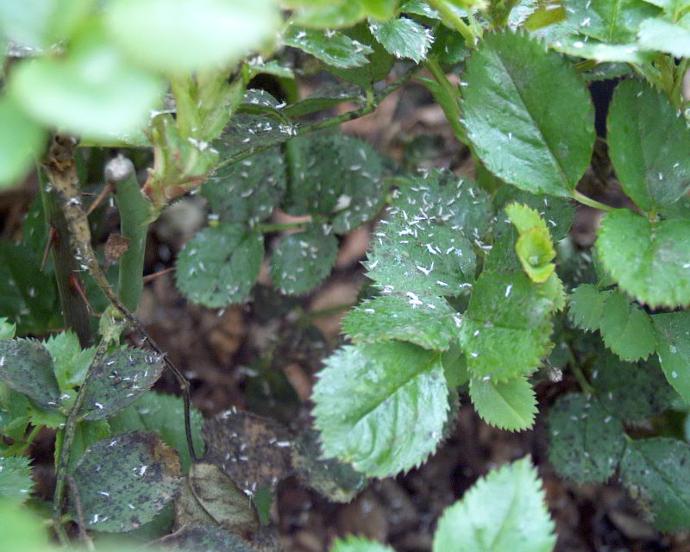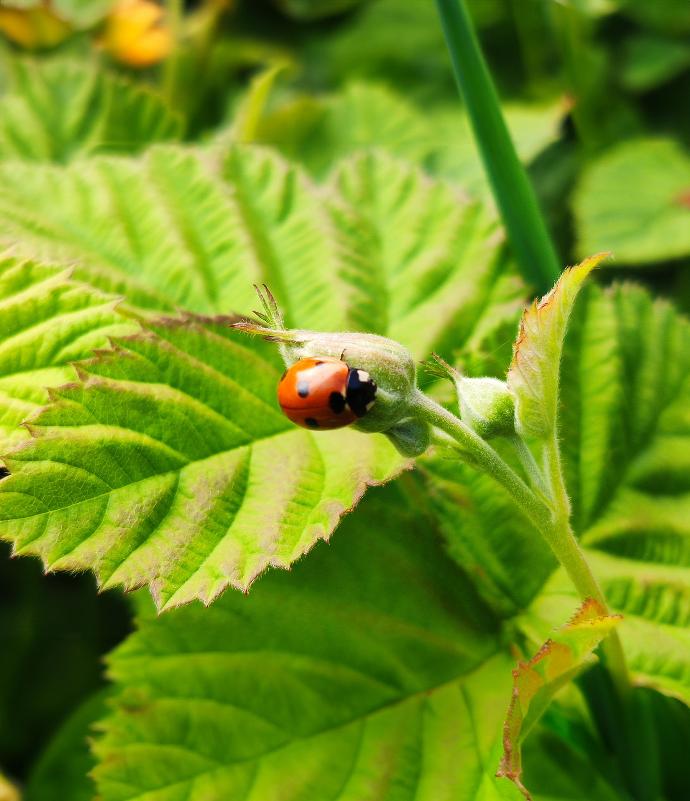Aphids
These sap-sucking insects are hunted by many predators and
form the basis of numerous food chains.

What are aphids?
Aphids are sap-sucking insects, ranging in size from 1 to 7 mm long. Common aphids include the green or black ones (black bean aphid), but there are species that are yellow, pink, white, or spotted.
There are over 500 species of aphids in Europe. Some feed on only one or two plant species, but others can be found on a wide range of plant hosts. Many have life cycles involving more than one host plant. Nearly every plant can serve as a host for aphids: ornamental plants, vegetables, fruits, greenhouse plants, and indoor plants.
Symptoms?
You may observe the following symptoms:
It is usually possible to see aphid colonies with the naked eye; many species colonize shoot tips, flower buds, and the underside of younger leaves.
Aphids can cause curled or deformed leaves and slow down plant growth.
Many aphids produce a sticky honeydew on which black sooty mold can grow.
The discarded skins from aphid molting can accumulate on the upper surface of the leaves.
Often, you will find ants near aphid colonies; they tend to the aphids and, in return, receive honeydew as a reward. Therefore, ants will protect the aphids and remove aphid predators.


Should you remove aphids?
It's a transient phenomenon. Tolerate aphids where possible. It's normal to have some in a healthy, balanced garden. They are an essential food source for a wide range of wildlife in the garden.
Do aphids kill plants?
Simple: no. Some aphids cause some leaf and bud deformation. Sometimes you may see some honeydew on which a harmless sooty mold fungus can grow. You can wipe this off with a damp cloth.
Should I control aphids?
No, leave the work to the natural enemies of aphids: ladybugs, ground beetles, rove beetles, hoverfly larvae, parasitic wasps, earwigs, small garden birds like tits. So, create conditions that welcome natural enemies.
If necessary, you can already spray off a large part of the aphids with the garden hose or rub them off by hand.
When insects come to tap some sap for a moment, a healthy plant naturally stands stronger.
We use AlgoVital Plus.
This seaweed extract is an organic product that provides the plant with the necessary silicon, minerals, and trace elements.
Ladybug larva devours aphids
Parasitized (and consequently dead) aphids
White aphid molting on leaf
Green and pink aphids in the background
Green lacewing larva eats aphids
Innocuous sooty mold grows on honeydew secretion